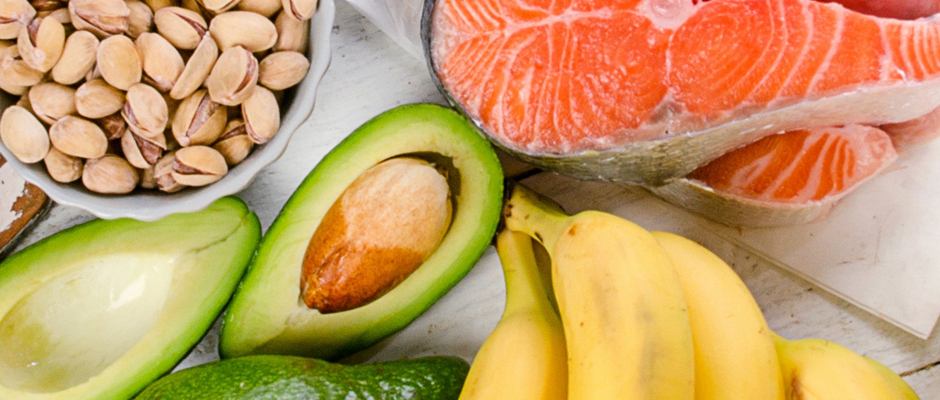B Vitamins are Awesome
B-Vitamins, in general, are extremely important for a variety of reasons. Specifically, B1, B2, B3, B5, B6, B7, B9, and B12 — play an essential role in keeping our bodies running the way they should. I am personally a big fan of ensuring you get enough B12.
B12 is a powerhouse. For example, it helps our body produce red blood cells, prevent birth defects in our offspring, prevent osteoporosis, improves mood, reduce depression, boost energy, and much more. One of the reasons that I love it is because of what it can do for our brains. B12 helps keep the brain and nervous system healthy. In fact, it is currently believed that B12 is needed to form memories and concentrate. I call it “brain food.” Of course, it also aids in skin, hair, and nail issues.
In fact, according to numerous studies from around the world, B vitamins play a vital role in almost every part of our health. Dr. Julian Whitaker states that by taking a quality B Complex, you can help yourself stay mentally sharp, reduce the rate of brain atrophy, prevent cardiovascular disease, keep your bones strong, preserve your vision, boost your energy, lift your mood and even prevent allergies and asthma (Whitaker, 2014).
However, supplementation is only necessary if you are not eating the right foods. Good natural sources of B vitamins include poultry, fish, meat, eggs, dairy, dark leafy green vegetables (if you must), and fruits such as papayas, oranges, and cantaloupe. The best sources of B12 come from red meats like beef and pork. As you can probably imagine, with current diet trends, some people are probably missing out.
The potential problem with B vitamins is that many people suffer from hidden deficiencies. Deficiencies are sometimes easy to see, but when it comes to B vitamins, getting too much of one can make a deficiency in another hard to spot. A great example of this might be getting too much folic acid. That’s one of the reasons why Harvard T.H. Chan School of Public Health suggests that it is best to avoid foods such as energy bars, cold breakfast cereals, and other processed foods that are heavily fortified with folic acid (vitamin B9) (Harvard T.H. Chan School of Public Health, 2016).
Too much B9 can be a problem. To be clear, there is a risk of toxicity from folic acid from supplementation and enriched or fortified foods. This is a problem because too much folic acid hides signs of B12 deficiency. As a result, a person can cause themselves some damage. Basically, if you have an unknown B12 deficiency but are folate sufficient and then you consume large amounts of folic acid, you run the risk of causing irreversible neurological damage. Yet another reason why I am a fan of ensuring your B12 status is sufficient. The thing to keep in mind is that folic acid works with vitamins B6 and B12.
The good news is that there is no health risk associated with folate intake from foods that naturally have it. So eat a solid diet and supplement in moderation, and you should be good to go. If you decide to supplement, ensure it is a B-Complex so you get the right amount of each B vitamin. An alternative might be to supplement with B12 specifically and ensure that you eat the foods listed above. B12 is a water-soluble vitamin, so it’s generally considered safe at high doses. However, “mega-doses” have been linked to adverse outcomes. Talk with a nutritionally competent doctor for more information.
Another warning on folate. Unless you have been specifically instructed to do so by your doctor, be careful about supplementing with folate specifically. The Food and Nutrition Board of the Institute of Medicine has established a tolerable upper intake level for folate. For children 1 to 3 years, the limit is 300 mcg daily. For children 4 to 8, the limit is 400 mcg daily. For children 9 to 13, the limit is 600 mcg daily. For adolescents 14 to 18, the limit is 600 mcg, and for those over 19, the limit is 1,000 mcg per day.
As you can see, it’s not much. Intakes above these recommended limits increase the risk of adverse health effects (Wickham, 2013). My advice is to ensure you get your folate from food or, as previously mentioned, in a B-Complex to ensure balance. Your body will thank you.
RESOURCES – CLICK HERE
This article was adapted from a chapter in the book Natural Health Made Easy: The Briobiotic Protocol (2016)
This article was written from a Health Science perspective. Dr. Robertson is a health researcher and educator, not a physician. The information provided here is not medical advice, a professional diagnosis, opinion, treatment, or service to you or any other individual. The information provided is for educational and anecdotal purposes only and is not a substitute for medical or professional care. You should not use the information in place of a visit, call consultation, or the advice of your physician or other healthcare providers. Dr. Robertson is not liable or responsible for any advice, course of treatment, diagnosis, or additional information, services, or product you obtain or utilize. IF YOU BELIEVE YOU HAVE A MEDICAL EMERGENCY, YOU SHOULD IMMEDIATELY CALL 911 OR YOUR PHYSICIAN.




